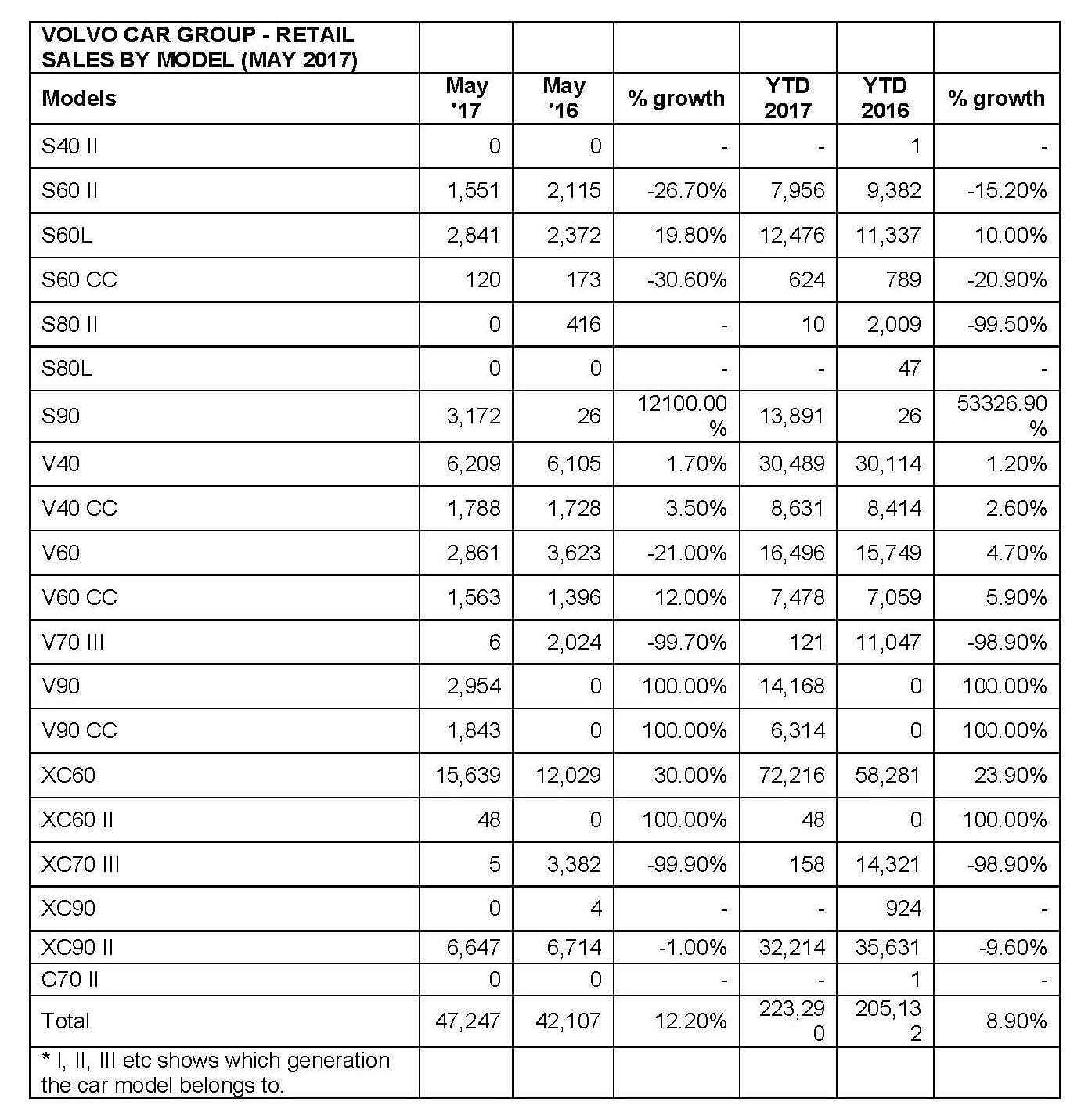Volvo Cars clocks global sales growth of 12.2 percent in May
Firm demand for new 90 series cars remains an important factor in the company’s sales performance, while the original XC60 continues to be the best-selling model overall.
Volvo Cars has reported double-digit global retail sales growth of 12.2 percent compared to the same month last year, on the back of solid performance in all its three main sales regions.
Total sales for the month amounted to 47,247 cars, compared to 42,107 cars the year before. Growth for the first five months of 2017 was 8.9 percent. Volvo sold a record 534,332 cars in 2016 and is confident it will report another record this year.
Firm demand for new 90 series cars remains an important factor in the company’s sales performance, while the original XC60 continues to be the best-selling model overall.

The Asia Pacific region reported sales growth of 30.6 percent in May to 12,721 cars, boosted by a strong performance in China, Volvo’s largest individual sales market. Sales in China rose 38.8 percent to 9,779 cars as the locally produced S90, XC60 and S60L models prove popular with customers.
Sales in the Americas region increased 10.4 percent to 7,574 cars. The increase came after a 12 percent increase in the US market to 6,202 cars. The XC90 was the best-selling car in both the Americas region and the US market for the month, followed by the XC60.
Sales in the EMEA region increased by 5.4 percent in May to 26,634 cars. Europe’s most popular premium midsize SUV, the XC60, remained Volvo’s best-seller in the region, followed by the V40/V40 Cross country.
Globally, the XC60 was the best-selling model in May with 15,639 cars sold (2016: 12,029), followed by the V40/V40 Cross Country with 7,997 cars sold (7,833). The XC90 was third with 6,647 units (6,715).

RELATED ARTICLES
Sept 2024 From R&D incentives to EV infrastructure: What auto components industry expects from Budget 2024
Sept 2024 From R&D incentives to EV infrastructure: What auto components industry expects from Budget 2024
US car majors hit the brakes on driverless cars
Ford Motor and Volkswagen to close self-driving startup Argo AI, due to lack of technology and clear regulations.
Autoliv and Geely to develop advanced safety tech for future vehicles
Scope of cooperation includes safety for high-level autonomous driving, intelligent steering wheel technology, a 360deg ...






 By Autocar Pro News Desk
By Autocar Pro News Desk
 02 Jun 2017
02 Jun 2017
 3042 Views
3042 Views









